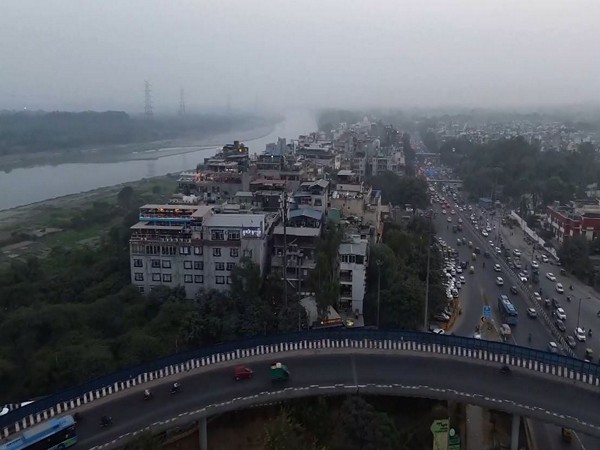Truck drivers in Delhi raised concern about the potential impact on their livelihood as the Commission for Air Quality Management’s (CAQM) ordered the implementation of the Graded Response Action Plan (GRAP-II) in Delhi-NCR from Friday.
With restrictions imposed to limit the movement of BS-III petrol and BS-IV diesel vehicles in Delhi and neighbouring districts, many drivers fear financial hardships, including difficulties in meeting loan repayments for their vehicles.
Speaking to ANI, a truck driver said, “We will face a lot of problems related to livelihood if our vehicles won’t be allowed to enter Delhi. From where we will bear our expenses? We have EMIs to pay for our vehicles, from where we will pay that?”
Another truck driver mentioned that while the government’s decision to curb pollution in Delhi is correct, it causes significant problems for drivers.
“Keeping in mind the problems that occur in Delhi due to pollution, the government takes right steps but the drivers also have to face problems due to it,” he said.
With the air quality index (AQI) in Delhi worsening and hovering in the severe category, the CAQM on Thursday ordered to invoke Stage III of the GRAP in Delhi NCR with effect from 8 am of November 15 in addition to all actions under Stage I and II to prevent further deterioration of air quality in the national capital region.
GRAP III (Graded Response Action Plan) measures to mitigate the effects of air pollution in Delhi NCR include intensifying the frequency of mechanised sweeping of roads, daily water sprinkling along with dust suppressants, before peak traffic hours, on roads and right of ways including hotspots, heavy traffic corridors and proper disposal of the collected dust in designated sites/ landfills. All demolition works, earthwork for excavation and filling including boring & drilling works, and any transportation of demolition waste are banned with the implementation of GRAP III measures to fight air pollution.
Under GRAP III measures Commission for Air Quality Management (CAQM) advice State Govts. in the NCR and the GNCTD may take a decision on discontinuing physical classes in schools for children up to Class V and conducting classes in an online mode as GRAP III measures will be implemented
GNCTD to not permit BS-III and below diesel-operated LCVs (goods carriers) registered outside Delhi, to enter Delhi, except those carrying essential commodities / providing essential services.
The Graded Response Action Plan (GRAP) for the National Capital Region (NCR) is classified under four different stages of adverse air quality in Delhi: Stage I — ‘poor’ (AQI 201-300); Stage II — ‘very poor’ (AQI 301-400); Stage III — ‘severe’ (AQI 401-450); and Stage IV — ‘severe plus’ (AQI >450).
The CAQM Sub-Committee, after an urgent review meeting on November 14, noted that since November 13, the AQI in Delhi had remained firmly in the “Severe” range, with forecasts indicating that it could stay at the higher end of the “Very Poor” category in the coming days.
This year, Stage III has been invoked much later than in 2023, when it was activated on November 2nd. The action plan, effective across the entire NCR, will supplement ongoing Stage-I and Stage-II measures already in place.
The 11-point action plan under Stage III includes increased road sweeping, intensified water sprinkling with dust suppressants in high-traffic areas, and enhanced public transport services with differential pricing to encourage off-peak travel.
Additionally, a strict ban has been imposed on dust-generating construction and demolition activities, with only essential projects related to national security, healthcare, and public infrastructure allowed to continue under strict environmental controls.
Polluting industries, including stone crushers and mining operations, will be shut down, and there will be restrictions on the movement of BS-III petrol and BS-IV diesel vehicles in Delhi and neighbouring districts.
Interstate buses not meeting environmental standards will also be barred from entering the city. Authorities are also considering switching to online classes for children up to Class V to reduce exposure to harmful air quality.
The CAQM has urged citizens to follow the guidelines under Stage III, including choosing cleaner modes of transport, working from home when possible, and avoiding the use of coal and wood for heating. The CAQM appealed for public cooperation in ensuring the successful implementation of these measures to reduce the health risks posed by the severe pollution in the region.-ANI


